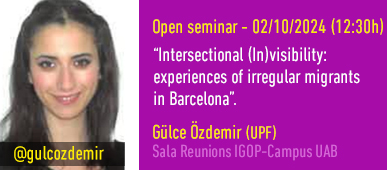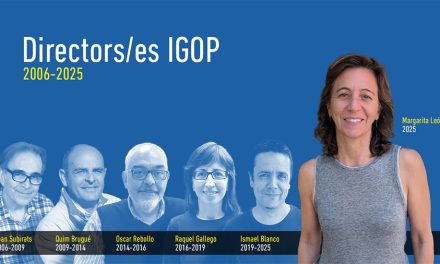Recycling in urban apartments: how can the waste burden be more justly distributed?
Ralph Horne (with co-author – Bhavna Middha)
Associate Deputy Vice-Chancellor, Research and Innovation, RMIT University (Australia)
When: Thursday 28th september 2023
Scheduled: 12:00h
Where?: Sala de reunions IGOP (edifici MRA Campus Bellaterra)
Language: English
Registration: open seminar (without prior registration)
Abstract:
Apartments are of particular interest in zero waste debates. They are associated with lower recycling rates than other housing typologies. Plastic bag levy policies have been found to have a significant effect among owner-occupiers of high-rise apartments with higher socio-economic status, but a minimal effect among lower socio-economic households and renters. This points to the unequal effects of waste reduction measures across housing types, class, and tenure types.
Paying heed to rhythms of urban waste can provide insights into how the waste burden can be more justly distributed. In Australia, as in other owner-occupier, suburban based societies, housing is an essential locus for the domestic waste regime, and apartments are anomalies that disrupt it. Rather than assuming that the aforementioned lower recycling rates are a product of household behaviour, we present empirical research that reveals dynamics at play that make apartments incompatible with normalised waste regimes. Spatio-temporal knowledge of waste and apartment living is embodied and experienced, doing places and doing times form the rhythms of waste. Understanding and addressing these is thus a key to addressing uneven urban waste practices.















